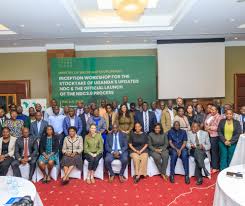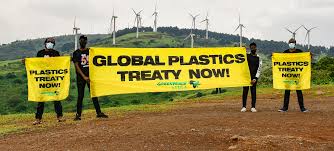- The African Energy Chamber commends OPEC and its allies for extending oil production cuts into 2025 amid efforts to stabilize the market
The Republic of Congo’s Minister of Hydrocarbons Bruno Jean-Richard Itoua participated in two historic OPEC meetings on June 2, where the decision was made to extend oil production cuts into 2025.
The meetings – an OPEC Conference and the OPEC and non-OPEC Ministerial Meeting – brought together OPEC member states and their non-OPEC counterparts to formulate strategies aimed at improving market stability and strengthening cooperation among producing nations.
The Republic of Congo remains steadfast in its commitment to supporting market stability and believes the production cuts will not only encourage new investment in African oil and gas projects, but also stabilize barrel prices and global exports.
OPEC and its allies (OPEC+) initiated production cuts in 2022 to counteract demand fluctuations and price instability. At present, these cuts amount to approximately 5.86 million barrels per day (bpd) or 5.7% of global demand. Approximately 3.66 million bpd were due to expire at the end of 2024 and have been extended through 2025, while approximately 2.2 million bpd were due to expire in June 2024 and have been extended through September 2024. From October 2024 to September 2025, OPEC will gradually phase out the 2.2-million bpd cuts.
These production cuts not only serve to benefit producers, but also global consumers. In addition to creating predictable revenue streams for producers that can stimulate the development of new upstream assets, production cuts stand to bolster the fiscal stability of oil-dependent countries while supporting economic growth and development.
For the Republic of Congo, production cuts aim to create stability across the domestic market, while incentivizing new investment in oil developments. The country is leading several exploration and development programs that unlock new geological plays, with independent hydrocarbon producer Perenco yielding a shallow water discovery at its PNGF Sud license and recently completing a 3D seismic acquisition campaign on the Tchibouela II, Tchendo II, Marine XXVIII and Emeraude permits, paving the way for future exploration drilling.
Italian major Eni is focused on exploration efforts on the conventional and deep offshore areas off the coast of Pointe-Noire; Chinese energy company Wing Wah is developing the Banga Kayo block; while French supermajor TotalEnergies is preparing to drill the Niamou-1 exploration well on the Marine XX offshore block. These developments are just the start, with the country inviting investors to seize additional opportunities in untapped offshore blocks. Through the OPEC-led production cuts and subsequent price stability, the Republic of Congo has proven well-positioned to attract upstream investment and offer a more attractive operating environment, backed by stable market conditions and long-term growth prospects.
As the sixth-largest oil producer in Africa, the Republic of Congo has ambitions to leverage its oil production to fuel further economic growth. The country’s production for the month of April 2024 measured at 259,000 bpd. With over 1.8 billion barrels of proven oil reserves, the Republic of Congo has the capacity to increase production to 500,000 bpd. Existing production cuts will support this goal, as market stability creates the conditions necessary for long-term investments.
“OPEC remains committed to improving market stability and strengthening global oil dynamics. The production cuts reflect this and will ensure that the regular investment that the Congo has witnessed for several years continues. New investment in Congolese oil and gas will create a strong and resilient economy, driving job creation and economic opportunity, in line with President Denis Sassou Nguesso’s vision for our country,” stated Minister Itoua.
Source: African Energy Chamber.







